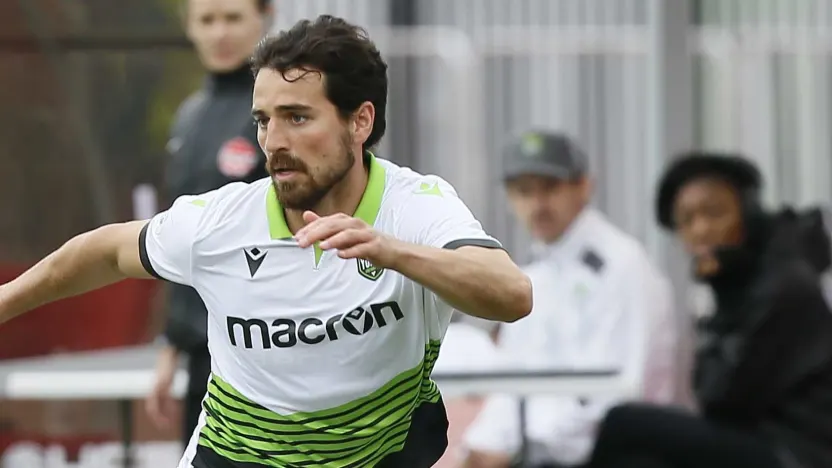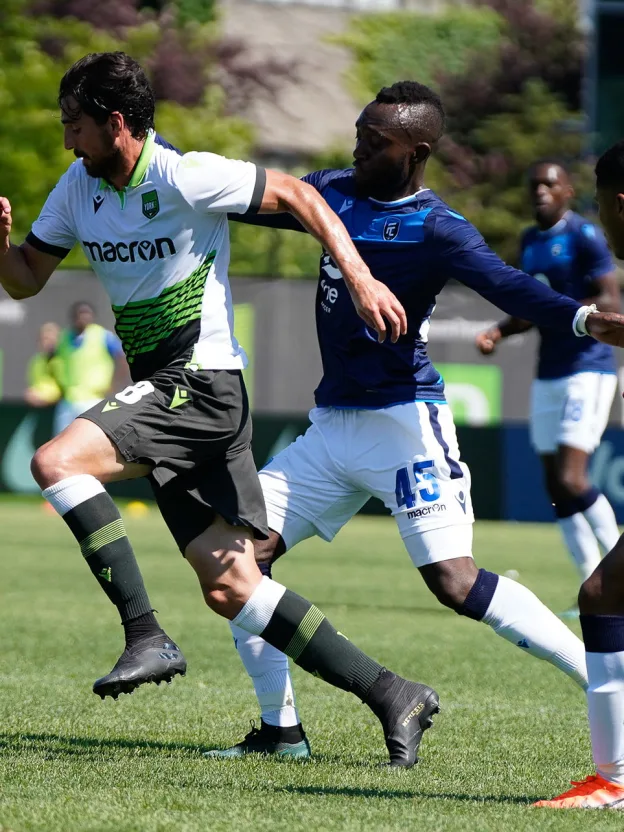As members of the CanPL.ca editorial team have come to learn, Joseph Di Chiara is one of the Canadian Premier League’s best talkers. There’s a jovial and very warm nature to the York9 FC midfielder, who engages reporters as though they are old friends having a chat with him over a beer at the local pub, rather than adversaries who are probing him for answers. Don’t let Di Chiara’s friendly demeanour fool you, though. As friendly an interview subject as he is, he’s also a relentless and fearless midfielder who shows no mercy on pitch in the way he break up plays and goes into tackles against opponents. It’s an interesting dichotomy, but once you come to understand the path Di Chiara took to get to the CPL, it makes perfect sense. A 28-year-old native of Toronto, Di Chiara cut his teeth at Spartacus Soccer Club, one of the top youth clubs in the country that also produced players the calibre of Canadian internationals Derek Cornelius and Daniel Haber, as well as York9’s Chris Mannella. Founded by Russian immigrant Yuri Studin, Spartacus helped Di Chiara develop his skills as a young player before arranging a move to Russia for him. Di Chiara ended up signing with PFC Krylia Sovetov Samara in 2011, and he made his Russian Premier League debut that same year.
RELATED READING: York9’s Joseph Di Chiara: Off-season moves show ‘we’re being serious’ about winning
“Spartacus had a few connections over in Eastern Europe, so they sent a few of us players over there in that part of the world; after I was finished high school I had the opportunity to go over there, and luckily for me I started my professional career in Russia,” Di Chiara recalled in an interview with CanPL.ca. Di Chiara played a handful of games for Kryliya Sovetov before moving to Hungary, where he suffered through an injury-plagued stint with Kecskemeti TE before returning to Russia with Torpedo Moscow in 2013. The next few years saw Di Chiara go back and forth between Canada and Eastern Europe – aside from playing for Unionville-Milliken and Vaughan Azzurri in League1 Ontario, he also turned out for FC Okzhetpes in Kazakhstan, and FK Jonava in Lithuania. In 2019, he came home again when he signed with York9 and appeared in 27 games in all competitions (logging just under 2,000 minutes in playing time). Di Chiara was an unheralded star for a Y9 side that finished third in the overall table last season, his steady and consistent performances in midfield helping him to earn the trust and esteem of coach Jim Brennan. He seamlessly fit into York’s starting 11, and quickly adapted to life in the CPL, unlike other players (both domestic and foreign) who struggled on the pitch during the league’s inaugural season. Playing in a brand new league isn’t easy, as it poses a multitude of challenges for players, both on and off the pitch. Di Chiara was able to adapt, in part, because of his experiences abroad – playing in Eastern Europe toughened him up. “Russia is a type of country where you have to grow up fast. They’re not going to hold your hand, or coddle you, or wait for you to adjust. Perfect example: When I first arrived after a long flight, that very same day I’m at training so they can see what I’m all about it. There’s no babying over there,” Di Chiara explained. Di Chiara found the locals took the same approach to facets of everyday life.

“The overall character of the people there rubbed off on me a little bit. Russia is all about tough love; they give you a lot of tough love. It’s like that not just with guys on the team, but also (regular) people. They care about you, but they show it to you in a different way. They expect things because they care about you. That’s how I am now: The more I like you and the more I care about you, the more I’m tough on you. That’s the one thing I took from my experience from playing in Eastern Europe,” Di Chiara said. “It toughened me up. That’s the only way you’re going to survive over there. You gotta be tough, and you gotta have a thick skin.” Despite some hardships, Di Chiara looks back upon his time playing in Eastern Europe with fondness, and credits his experiences there as invaluable in terms of his development. “Playing over there is tough for any young player, not just a Canadian, but even from elsewhere in Europe. Those countries aren’t very receptive to international players coming in; they like their domestic players, so you have to grow up fast. I learned a lot about myself there, not just as a player but also as a person. Those Eastern European countries, playing there for the time that I did, made me the player that I am today,” Di Chiara said.
